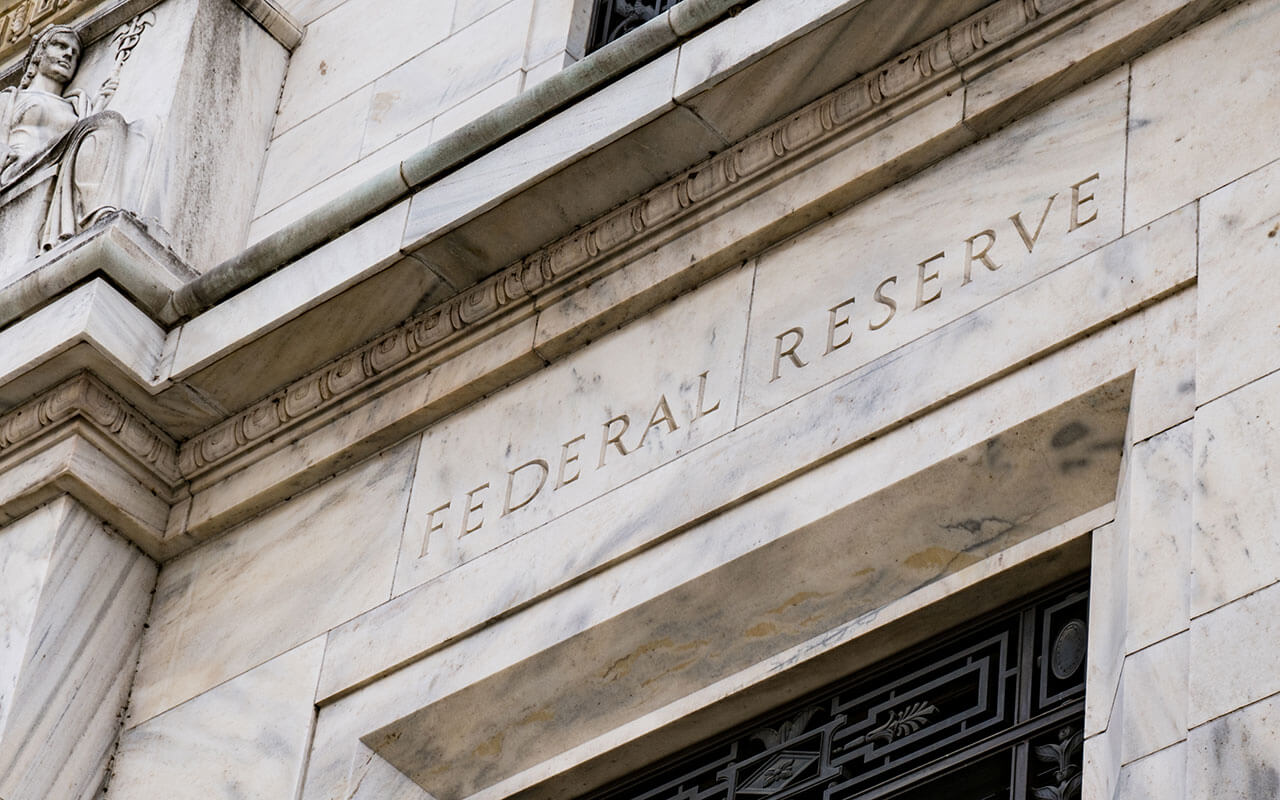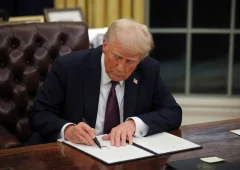Fed Holds Rates as Inflation and Growth Pull in Opposite Directions
07.05.2025 21:20 2 min. read Alexander Zdravkov
At its May 7, 2025 meeting, the Federal Reserve left the federal funds rate unchanged at 4.25% to 4.50%, marking the fourth consecutive decision to keep rates steady.
The move was widely expected as the central bank faces a complicated economic backdrop of persistent inflation, slowing growth, and increasing geopolitical tensions.
Recent data shows that the U.S. economy contracted slightly in the first quarter, with GDP declining at an annualized rate of 0.3%. Yet the labor market continues to show resilience—April brought 177,000 new jobs, and unemployment held at 4.2%. Despite these encouraging employment figures, inflation remains elevated, particularly the core measure that excludes food and energy. A key contributor has been the recent surge in tariffs, including a steep 145% import tax on Chinese goods, which has added upward pressure on consumer prices.
The Fed’s decision reflects a cautious approach, as officials balance the risks of entrenched inflation against those of a potential economic slowdown. The central bank’s statement acknowledged that the outlook remains uncertain, with both inflationary pressures and downside growth risks being carefully monitored.
President Donald Trump has continued to call for swift interest rate cuts to boost economic activity ahead of the 2025 election season. However, Fed Chair Jerome Powell has maintained that monetary policy will remain independent and guided strictly by data. “We are not reacting to political commentary,” Powell said in his post-meeting remarks. “Our decisions are grounded in our dual mandate to promote stable prices and maximum employment.”
For now, the Fed appears content to hold steady, watching closely how inflation and labor market conditions evolve in the coming months before making its next move.
-
1
Dollar Faces Deep Decline as Fed Cuts Pressure Currency, Warns Morgan Stanley
06.06.2025 18:00 2 min. read -
2
Economist Who Called 1987 Crash Warns Markets Face Growing Risk
09.06.2025 17:00 2 min. read -
3
Will Japan’s Central Bank Spark a Crypto Rally?
11.06.2025 12:00 1 min. read -
4
Tariffs Threaten to Stall U.S. Growth in 2025, Recovery Not Expected Until 2026
07.06.2025 13:00 1 min. read -
5
Push for Rate Cuts Fuels Speculation Over Powell’s Successor
08.06.2025 8:00 1 min. read
Recession Fears Linger as Economic Signal Flashes Long-Term Warning
Despite a recent shift in sentiment suggesting the U.S. economy might dodge a recession, key forecasting tools are telling a different story.
Russia’s Oil Revenues Strained as Exports Decline Again
Russia’s oil exports took another hit last week, undermining gains from rising global prices as shipment volumes slipped for the second week in a row.
Putin Cornered as Iran Calls for Help After U.S. Strikes
As tensions erupt in the Middle East following U.S. strikes on Iranian nuclear facilities, Tehran has turned to Moscow for support.
Robert Kiyosaki Predicts 2025 “Super-Crash,” Urges Hoarding Gold, Silver, and Bitcoin
Personal-finance author Robert Kiyosaki is sounding the alarm that next year could bring an economic breakdown unlike anything modern markets have seen.
-
1
Dollar Faces Deep Decline as Fed Cuts Pressure Currency, Warns Morgan Stanley
06.06.2025 18:00 2 min. read -
2
Economist Who Called 1987 Crash Warns Markets Face Growing Risk
09.06.2025 17:00 2 min. read -
3
Will Japan’s Central Bank Spark a Crypto Rally?
11.06.2025 12:00 1 min. read -
4
Tariffs Threaten to Stall U.S. Growth in 2025, Recovery Not Expected Until 2026
07.06.2025 13:00 1 min. read -
5
Push for Rate Cuts Fuels Speculation Over Powell’s Successor
08.06.2025 8:00 1 min. read


